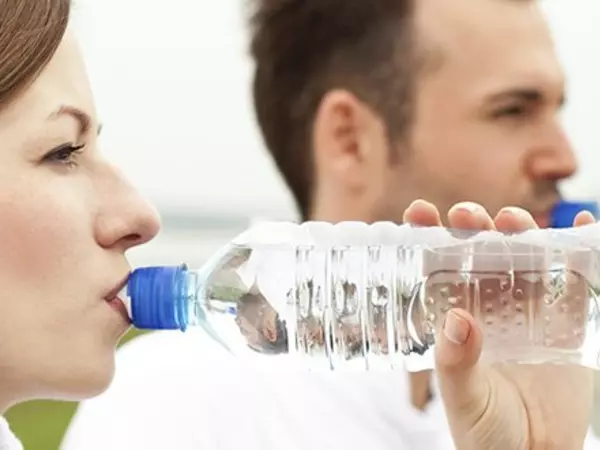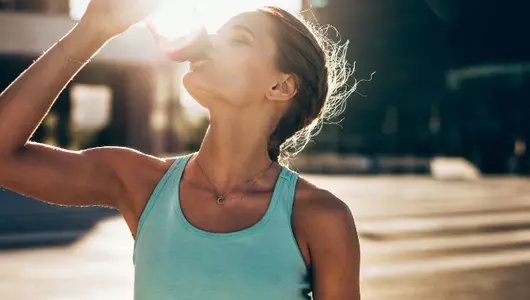
Are you over-hydrated?
We all know the possible health problems brought on by being dehydrated, but can you ever be overhydrated?
Over-hydration occurs when someone drinks too much water which affects our electrolytes. Electrolytes (sodium, potassium, magnesium, chloride and calcium) need to be in balance in order to maintain healthy blood, heart rhythm, muscle function and other important functions. Drinking too much water, can cause the electrolyte levels in the body to get out of whack and cause sodium levels plummet. The nerve and heart issues that occur with over-hydration can be deadly.
Though it doesn't happen very often (there have only been 14 confirmed over-hydration deaths), all have occurred in athletes. Either under the impression that over-hydration will lead to better performance or simply trying to prevent dehydration, athletes who drink too much water end up hyponatremic (with low sodium). Even sports drinks which contain some sodium are mostly made of water and consuming too much can lead to the same issues.
For most people, dehydration is the much greater issue. However, if you suspect you may be overhydrated, look for symptoms like cloudy thinking, nausea and vomiting, muscle weakness, spasms or cramps and headaches. In severe cases symptoms could include mental confusion, seizures, unconsciousness and even coma. The first treatment is to stop drinking fluids which will help someone recover in a few hours. However, with more severe symptoms, immediate medical attention may be necessary.
To prevent overhydrating, use your thirst cues and urine color as a guide. Drink water when you are thirsty and until your urine is light yellow to clear. Avoid drinking more than 1 liter of fluid per hour which will allow your kidneys to get rid of excess water. If you are experiencing excessive thirst, tell your primary care doctor right away, as this may be a symptom of another serious health issue.
Related articles

When to seek chiropractic care—5 symptoms you shouldn't ignore

Pinched nerves, sciatica and carpal tunnel

Essential tips for preventing sports injuries

Water or electrolyte drinks: What's better for athletes?